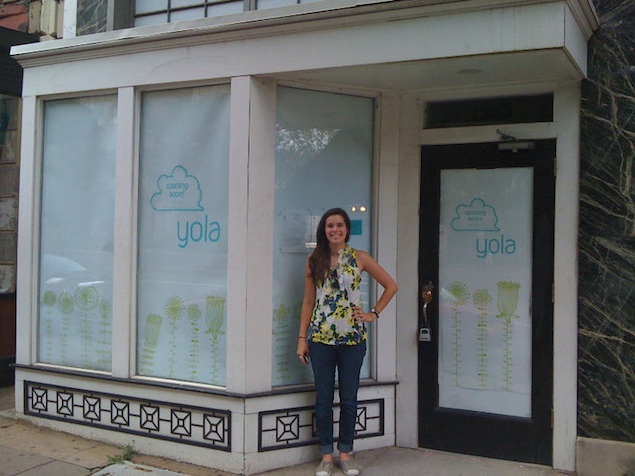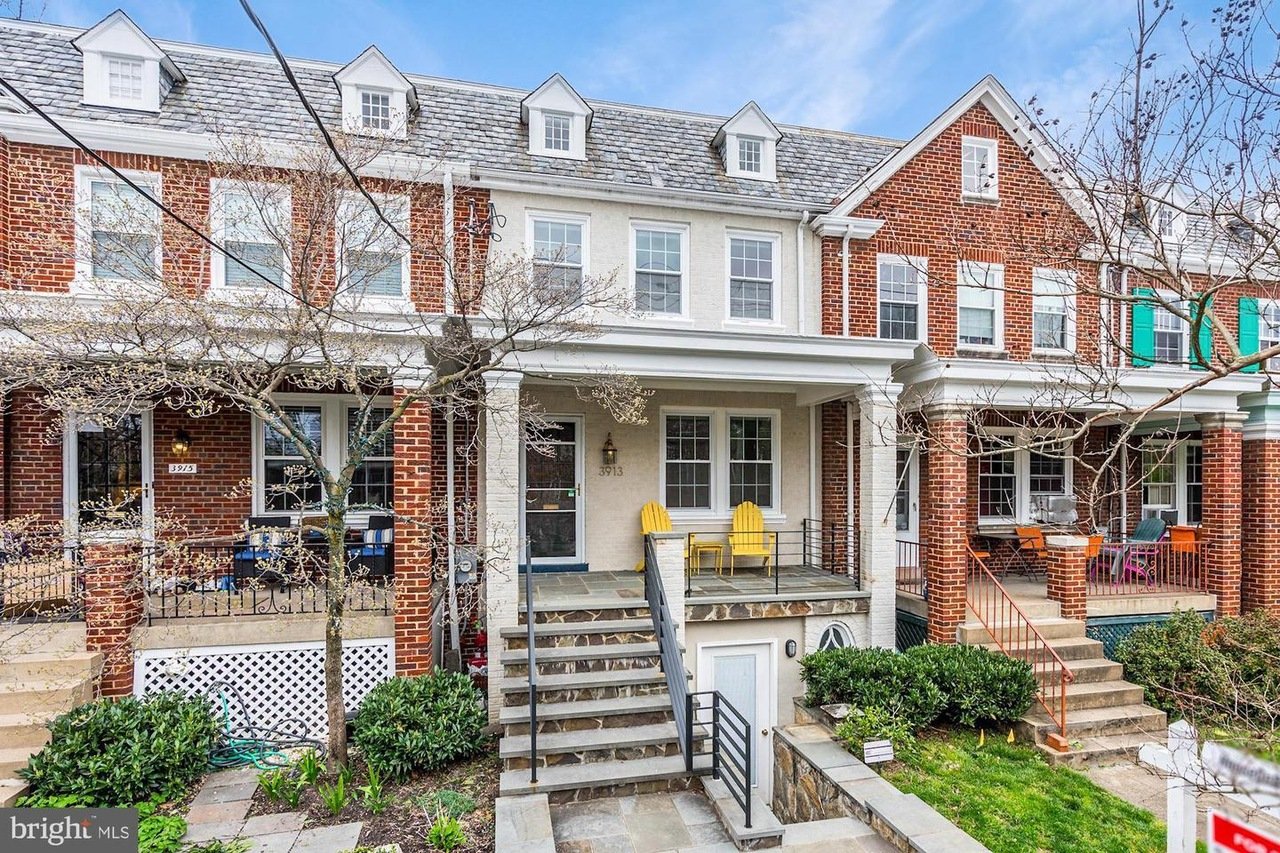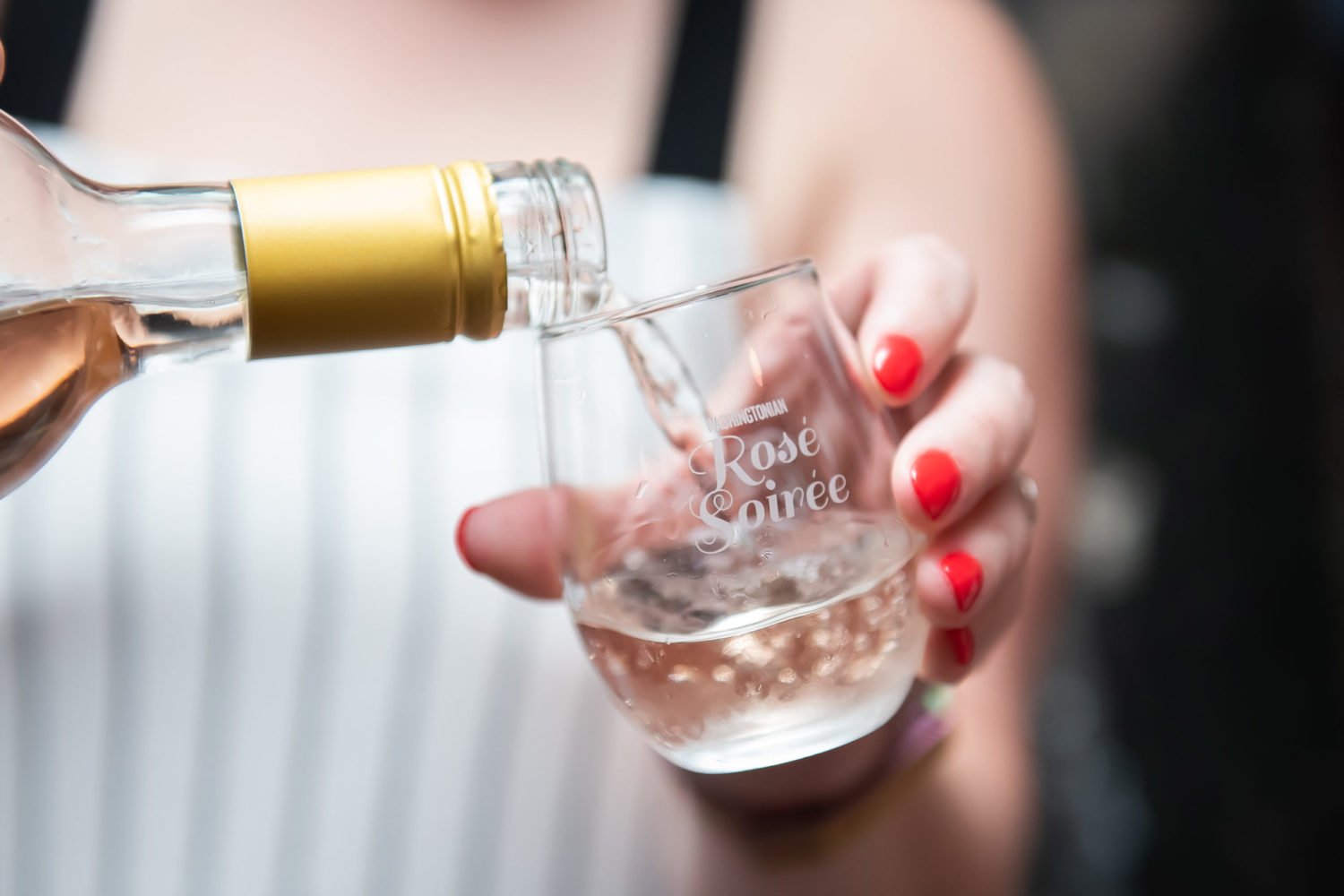The Dupont Circle yogurt shop Yola announced yesterday via Facebook
that it will be closing for good as of September 28. Service will continue as usual
over the next ten days. The number of online messages of condolence and support for
the small business are evidence of its popularity in the community, but co-owner
Laura Smith offers another perspective on local entrepreneurship—one that’s unfortunately far
more common than the
Top Chef-ian successes—in an essay that she shared with Best Bites Blog.
So You Want to Open a Restaurant
In December of 2010, my father and I opened Yola, a coffee house and DC’s only fresh,
not frozen, yogurt bar (Pinkberry has since added fresh yo to their lineup). I believed
our current food system was morally and nutritionally bankrupt, and I would be damned
if I wasn’t going to do something about it.
At first, our venture appeared successful. We sourced our yogurt from small farms
in the area, and people were smitten with our socially conscious, healthy mission.
The space, with its exposed-brick walls, was inviting. It had that buzzing energy
of people enjoying food and each other. We continually had to add employees to keep
up with growing demand, especially in the mornings. I fell in love with the art form
of coffee, and I enjoyed talking to our customers who felt the same way. At one point,
a regular customer turned to me and said, “It must be so great to be getting this
rich this young!” I felt like I was pulling off a great charade. At any moment, everyone
would realize the truth. We were losing money, and we were losing it fast.
People only saw the front end of the operation. The back end was another, less compelling
story. We worked countless hours trying to tweak our system, to stop the steady flow
of money out the door. We changed the menu and brought a consultant onto the team.
We worked on publicity, we tweeted, Facebooked, offered daily deals, created specials,
cut inventory, and raised prices. Then, of course, there was the unglamorous business
of actually running the store. I spent the majority of my time as a conflict resolver
for employee and customer squabbles, and as an amateur plumber. I learned patience:
Yes, it is a good idea to spend 25 minutes on the phone with a supplier about the
one head of kale they forgot to deliver—the only way successful restaurants stay successful
is by counting every nickel, dime, and head of kale.
When the money finally ran out, I learned how to not pay a bill. Previously, I’d never
let $5 go unpaid for longer than a week. Now I was slippery. “We’ll have the money
next month,” I learned to say. Worse than being called a jerk by a supplier for late
payments was the feeling that you were one, and this is what kept us up at night.
My original goal—the desire to revolutionize the food industry and run an imaginative
cafe where people could gather and exchange ideas—became a more meager goal: get out
with my integrity intact.
This past summer, when I knew the store was finally falling apart, I took a job as
a pool manager at a country club to help with mounting debt. I had a lot of time to
feel sorry for myself and think of what we had lost as I picked up soggy towels. Like
many, we were the losers of the food industry. We lost money—some of it was other
people’s, but the vast majority of it was ours or from small business loans in our
name. We lost sleep. At points, my parents thought they might lose their house. I
spent four months happily doped up on Celexa for an anxiety issue that my psychiatrist
said “shar[ed] symptoms with PTSD.” I lost friends simply because I didn’t have time
for them. But on the rare occasions that I was able to muster the strength to stop
feeling sorry for myself, I could recognize that I had a lot to be thankful for.
We gained strong intangibles—things no one can take away from us. I will never forget
the power of negotiation, how far an apologetic smile can go, and the knowledge that
even if you lose everything, you will learn how not to lose everything next time.
And as we prepare to pack up Yola, I remain proud of it. We had an idea, and it was
real—for a while anyway. Perhaps this is what we are all yearning for when we say
we want to open a restaurant: a sense of our power as individuals to achieve things
that are concrete and entirely our own. And if it doesn’t work out, you will have
to learn how to fail with dignity—a skill that is more valuable than all the other
lessons combined.
So what is there to say to all the would-be entrepreneurs? Can I encourage you to
live boldly while wet-blanketing your aspirations of opening a French cafe? If you
like French cafes, go visit one. Because opening your own will make it very hard to
enjoy that experience ever again. If you are sitting on the other side of that plush
grass (likely a desk) and you choose to stay where you are, then let my story offer
you a moment of peace, a brief reprieve from wondering
what if? And wear a knowing smile the next time someone tells you of their burning desire
to open an artisanal ice cream sandwich shop.
—Laura Smith
















